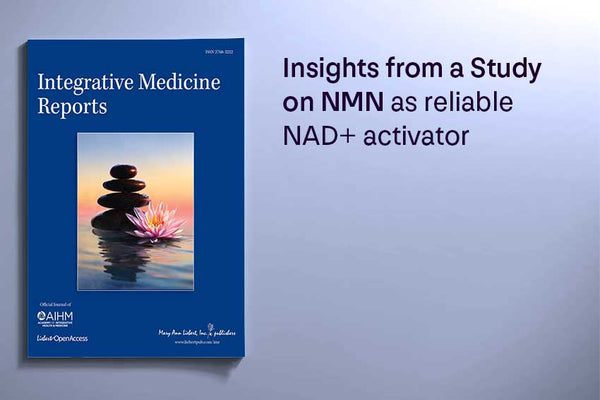
In a paper published in Integrative Medicine in February 2020, scientist Christopher Shade discussed the anti-aging potential of a molecule known as Nicotinamide Mononucleotide (NMN). The study highlights NMN as a stable and reliable NAD+ activator. It suggests that NMN possesses remarkable potential as an anti-aging molecule due to its role in activating NAD+, an essential component for cellular energy production and genome maintenance, which decreases with age. The study can be found here.
Shade concisely yet comprehensively presented his arguments in the study. He first highlighted the stability and reliability of NMN, two characteristics that are crucial for any potential therapeutic compound. According to Shade, these characteristics make NMN an effective NAD+ activator, a function that is pivotal for the longevity researched.
Key to understanding the significance of NMN's potential is understanding the role of NAD+. NAD+ (Nicotinamide adenine dinucleotide) is an essential coenzyme in cells. It's involved in numerous metabolic processes and serves as a crucial player in energy production. However, NAD+ levels decline with age, leading to reduced cellular energy production, which is one of the main drivers of the aging process. Consequently, strategies to boost NAD+ levels are of considerable interest in the field of longevity research.
Shade's study reinforces previous studies that identify NMN as a promising molecule for increasing NAD+ levels. He emphasizes NMN's potential as a therapeutic compound for combating age-related decline by boosting the body’s NAD+ levels. The study's findings are significant as they support the potential of NMN as an anti-aging supplement. By stabilizing NAD+ levels, it could counteract cellular energy reduction and possibly slow down or even reverse certain aspects of aging.
The study, however, didn't cover all aspects. For instance, NMN's absorption and efficacy when administered orally are flagged areas requiring further research. Also, although the paper alluded to the potential benefits of NMN supplementation in treating age-related diseases, specific illnesses or conditions weren't mentioned. This leaves room for future research to further investigate and explore the therapeutic applications of NMN.
Regardless, the study’s findings on NMN and its role in promoting longevity are a significant step forward in anti-aging research. As longevity studies continue to evolve, studies like this one provide invaluable insight into potential therapeutic targets for combating age-associated decline. It's exciting to think that we're making steps towards potentially slowing down the aging process.
Key Takeaways:
- The 2020 study by Christopher Shade, published in Integrative Medicine, highlights Nicotinamide Mononucleotide (NMN) as a stable and reliable NAD+ activator with potential anti-aging effects.
- NAD+ is an essential coenzyme that decreases with age, leading to reduced cellular energy production, which is one of the significant drivers of the aging process.
- Shade's study provides evidence supporting the potential of NMN as a therapeutic compound for combating age-related decline by boosting NAD+ levels.
- Future research is needed to investigate NMN's absorption and efficacy when administered orally, as well as its potential benefits in treating specific age-related diseases.
- Findings on NMN are a significant step forward in anti-aging research, offering potential therapeutic targets for countering age-associated decline.
